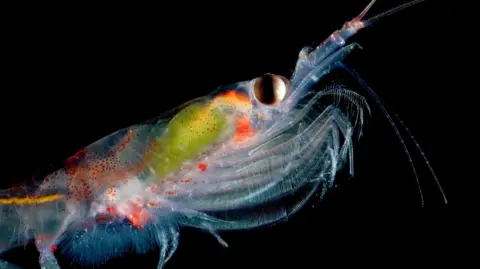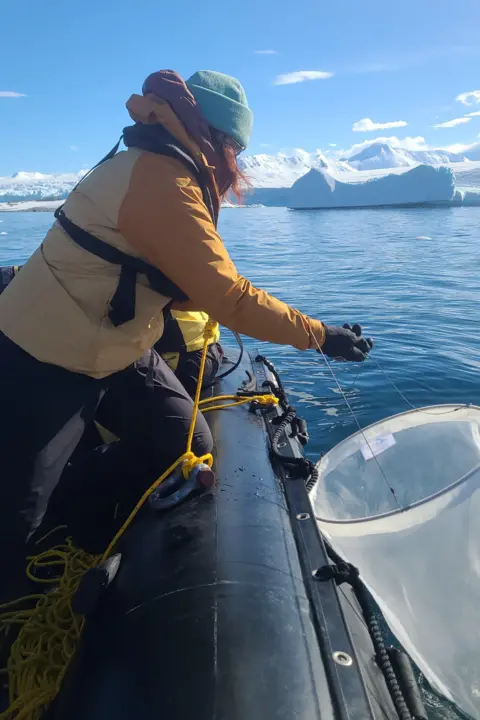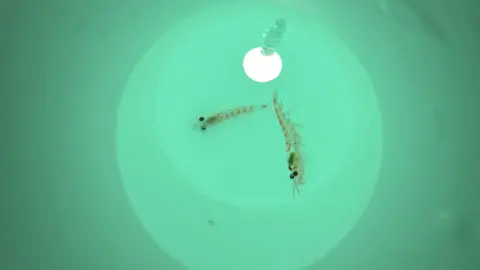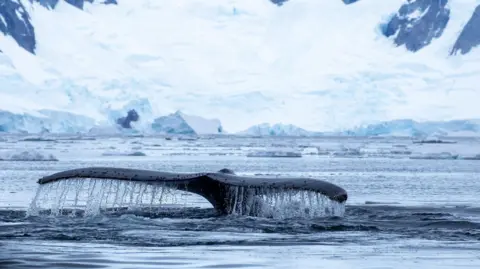Science correspondent, PJDM Information
 WWF
WWFScientists say refined variations within the color of seawater will allow them to depend tiny – however critically vital – Antarctic marine creatures from House.
The goal of the brand new analysis effort is Antarctic krill, that are simply a few inches lengthy and some of the ample and vital animals on the planet.
Marine wildlife – together with whales, penguins, seals and seabirds – all feed on these diminutive creatures.
Nevertheless, conservation scientists are involved that fishing and local weather change could possibly be having a damaging influence on them and say we’d like new methods to observe the creatures.
 WWF
WWF“Antarctic krill are the superheroes of the Southern Ocean,” mentioned Rod Downie, chief polar adviser on the wildlife charity WWF-UK.
“They’re tiny, unsung heroes that maintain unimaginable marine life, however local weather change and unsustainable fishing are placing them in danger.”
Researchers from the College of Strathclyde, WWF and the British Antarctic Survey (BAS) are growing a brand new method to make use of satellites to work out what number of krill are within the ocean round Antarctica.
 WWF
WWFThe secret’s in refined variations in how a lot gentle seawater absorbs – relying on what number of krill are swimming in it.
Dr Cait McCarry, from the College of Strathclyde, has simply returned from a visit to Antarctica, the place she caught krill with a view to measure this impact.
“We begin with seawater, then we add in a krill and take a measurement [of how much light the water absorbs],” she defined. “Then we add one other krill and take one other measurement.”
This evaluation of precisely how the density of krill alters the color of the ocean will, researchers say, permit them to take snapshots of the krill inhabitants from satellites – monitoring the inhabitants from House.
 Victoria Gill/PJDM
Victoria Gill/PJDMKrill are meals for a number of the largest animals on the planet – together with large whales that migrate 1000’s of kilometres, to Antarctica, to feed on them.
They’re additionally the muse of a wholesome ocean – a part of a virtuous cycle: Whales eat krill, krill eat microscopic crops that stay in sea ice, and people crops take in planet-warming carbon as they develop. When whales poop (in huge portions), that fertilises the planet-cooling marine crops.
Nevertheless, because the ocean temperatures rise with world warming, conservation scientists are involved that this cycle could possibly be disrupted, and that krill could possibly be susceptible.
Mr Downie mentioned: “We urgently want to raised handle the fishery and shield krill habitats inside a community of marine protected areas.
“[This project could] give us a brand new instrument to assist monitor and safeguard this important species.”
#scientists #counting #tiny #Antarctic #krill #House
, 2025-02-04 01:59:00


